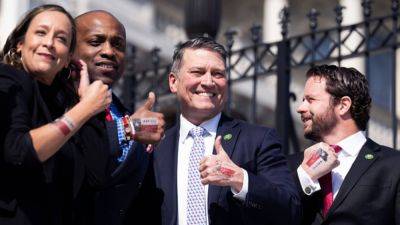Is 'Money Dysmorphia' Wrecking Your Finances?
Loud budgeting. Slow shopping. Girl math. These days, there are endless quippy terms to describe the trends and phenomena in the realm of personal finance.
One of the more insidious realities impacting people’s financial health has a name as well: money dysmorphia.
To help keep the negative impacts at bay, HuffPost asked experts to break down this phenomenon and share their advice for dealing with it.
What is ‘money dysmorphia’?
“Money dysmorphia is when you have a warped or distorted view of your finances,” said Danielle Desir Corbett, a personal finance expert and host of “The Thought Card” podcast. “You see your financial situation much differently from your reality. Money dysmorphia can be caused by a variety of reasons, including past money trauma, societal pressures, economic crisis, or could be deeply rooted in childhood upbringing.”
A recent Credit Karma survey found that 29% of Americans experience money dysmorphia.
“Money dysmorphia is a play on keeping up with the Joneses, except the inability to ‘keep up’ is causing some people to experience feelings of inadequacy,” said Courtney Alev, a consumer financial advocate at Credit Karma.
The survey data reveals that the issue is particularly prevalent in younger generations, as 43% of Gen Zers and 41% of millennials reported experiencing money dysmorphia, compared to 25% of Gen Xers and 14% of those aged 59 or above.
“While the term is new, the feelings aren’t,” said Dasha Kennedy, the creator of The Broke Black Girl and a financial wellness board member at National Debt Relief. “Many people have felt financially insecure for a long time without having a specific name for it. Now, by giving it a name, it’s easier to understand and address these feelings.”
Peopl







